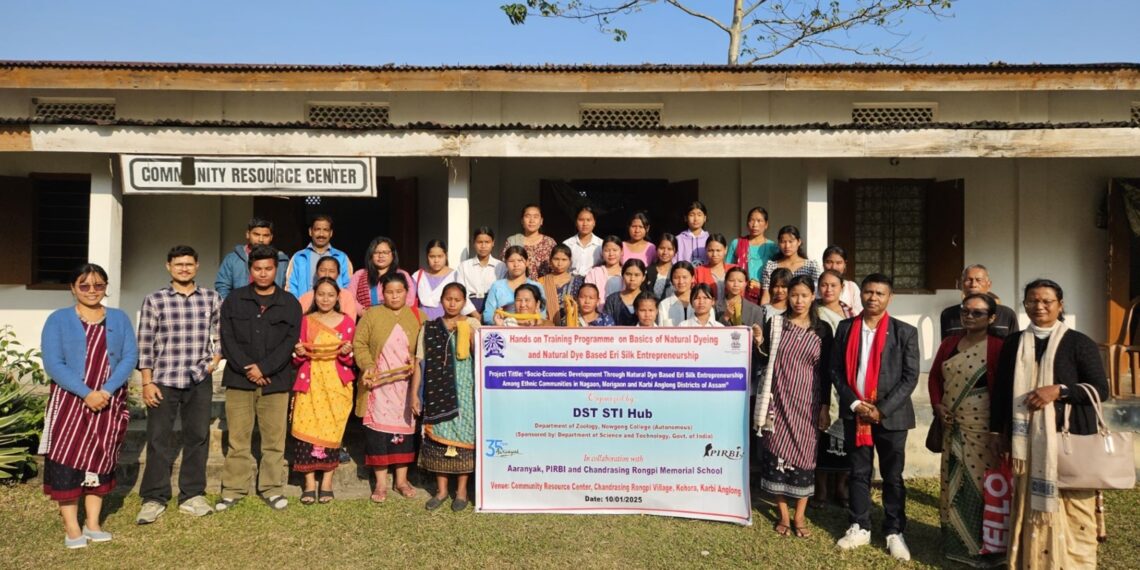Guwahati: A one-day training programme on natural dyeing and Eri silk entrepreneurship for women’s collectives and micro-entrepreneurs was conducted by the DST STI Hub, Department of Zoology at Nowgong College (Autonomous), in collaboration with Aaranyak, PIRBI, and the Chandrasing Rongpi Memorial School.
The event took place at the Chandrasing Rongpi Community Resource Centre in Kaziranga, Assam.
The training, part of the Alternative Sustainable Livelihood (ASL) initiative, aimed to provide participants with in-depth knowledge of sericulture practices and the art of natural dyeing.
Dr. Bhuban Ch. Chutia, principal investigator of the DST STI Hub at Nowgong College, and Jyotimoyee Machary, president of Anajoree Handloom in Morigaon, played key roles in enriching the session with their expertise.
The workshop emphasised sustainable practices in fabric and yarn dyeing, using locally sourced materials such as turmeric, onion peels, and marigold flowers.
Participants were guided through the process of creating seven different natural dyes, all produced through eco-friendly methods.
Additionally, the programme included valuable instruction on sericulture techniques, moth species identification, and the management practices necessary for successful silk production.
A key focus of the training was the preservation of traditional crafts, promoting both cultural heritage and environmental responsibility.
ALSO READ: Assam coal mine tragedy: Underground stream water slows dewatering efforts
By combining age-old techniques with modern sustainable practices, participants were empowered to produce eco-friendly products with market potential.
Aaranyak, an organisation committed to conserving biodiversity and supporting indigenous communities, played an integral role in the training.
The initiative is part of its ongoing efforts to provide sustainable livelihood opportunities through education and awareness programmes for communities in the Kaziranga-Karbi Anglong and Manas landscapes.















